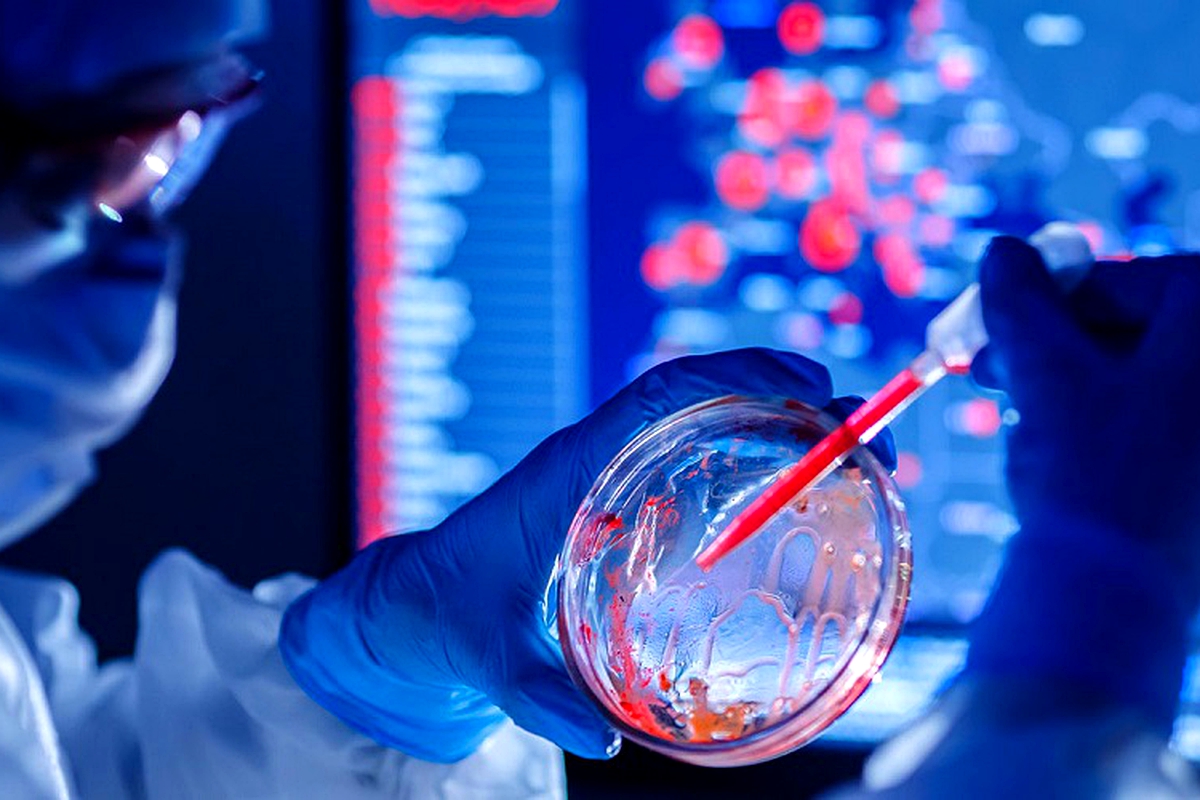JOHANNESBURG - There are two main ways to test for active infection. Both of them are what we call direct tests, meaning they detect the infectious agent itself – the coronavirus.
health
Nov. 15, 2020
STAFF REPORTER
8 min read
Types of Covid-19 diagnostic tests under the microscope

Wearing face masks in public spaces, maintaining physical distancing, avoiding poorly ventilated spaces and isolating if symptoms develop remain the most important defences against this virus. Now is also a good time to refamiliarise ourselves with who, when, why and how to test for SARS-CoV-2, the virus that causes Covid-19.
Different types of Covid-19 tests are becoming available and it is important to understand which category should be used to ensure your safety.
There are two main ways to test for active infection. Both of them are what we call direct tests, meaning they detect the infectious agent itself – the coronavirus. They are PCR tests and the more recently available antigen tests. We explain them both below.
Direct and indirect tests
Indirect tests pick up antibodies in our blood that are produced when the virus infects our body. These antibodies can be detected in blood samples usually after 14 days, by which time symptoms of acute Covid-19 have often gone away completely.
Antibody (“serology”) tests are not suited to diagnosing acute Covid-19. In this article, we are going to focus on the established PCR test to diagnose acute Covid-19 and a fairly new kid on the block, the antigen test, which suggests a person might be infectious.
The main direct test for the coronavirus is a polymerase chain reaction or “PCR”. It is used to identify the viral genetic material in a specimen taken from our upper airways. PCR is a very sensitive technique for detecting the coronavirus, and is also used for other infections common in South Africa: for example, to diagnose HIV infection in babies born to HIV-infected mothers, TB, influenza, hepatitis B and a host of other viruses that cause the common cold.
What do positive and negative results mean?
Usually a negative PCR test result will mean that you really don’t have Covid-19 and that if you have symptoms, they are due to something else.
The coronavirus is not present in your airways during part of the incubation period (the time from when the virus infects you to the onset of symptoms). Therefore, although people who are tested during the early stage of the infection when symptoms have not yet developed will have a negative PCR test result, they may go on to develop symptoms and become infectious. That is one of the reasons why people without symptoms should not be tested in most cases, as it’s hard to interpret a negative test result correctly.
One other reason that the test could be negative is that it may be what we call a “false negative”. This happens either when the sample taken from your airways is of poor quality, thereby reducing the likelihood of detecting the virus in the sample, or the laboratory side goes wrong, e.g. the PCR reaction fails.
A positive PCR test result means you have acute Covid-19 right now, or have recovered from your symptoms but still have a positive test, which is detecting remaining bits of dead virus in your airways.
The PCR may be positive for weeks after your symptoms start, but this does not indicate that you are still infectious because the virus’s “load” decreases with time. PCR only detects the virus’s genetic material, not the whole virus needed to infect others.
Research using other types of tests that can detect “live” infectious virus tells us that transmission of your coronavirus to others does not happen more than 10 days after your symptoms started. This can be longer for those with severe acute Covid-19 who needed admission to hospital and oxygen support, so in these cases we consider the risk of transmission to have ended 10 days after oxygen is no longer required. This also explains why requiring a negative PCR test result to allow someone out of isolation or back to work is a waste of time and money. Accurately counting days on a calendar suffices for that purpose.
Occasionally “false positive” PCR tests can also happen in the lab, but this is relatively easy to identify through quality control procedures.
Should I test again if my symptoms continue?
The persistence of clinical illness known as “Long-Covid”, in other words symptoms lasting more than 28 days, does not seem to be associated with the virus itself sticking around in your airways, so we don’t recommend repeat testing if symptoms persist.
If you have had Covid-19 and recovered, you may have a PCR test again in the future, for example following a high-risk exposure, if you develop symptoms, or for screening prior to travelling abroad.
If this test is positive, does it mean that you have been reinfected? The answer is likely to be no.
Although respiratory viruses in general can cause repeat infections quite commonly, and therefore recovering from Covid-19 may likewise not provide good and lasting immunity, our experience in SA and globally to date is that despite there having been more than 50 million cases of Covid-19, reinfection has been rarely reported. Again, judging from our experience with most other respiratory viruses, reinfections generally lead to milder infections in otherwise healthy individuals, second time around.
What’s the best thing to do in practice?
First, do not test in the absence of a good reason. This may change in future, in order to balance demand for testing and testing capacity.
Second, do not assume that someone who has had Covid-19 is now immune or non-infectious (MH1). For as long as Covid-19 is around it will be important to practise physical distancing, mask wearing and good hygiene.
Third, if someone who had previously been diagnosed with Covid-19 has a positive test result again, several weeks or months after the first one, the healthcare provider should contact the laboratory and discuss the case.
Enjoy our daily newsletter from today
Access exclusive newsletters, along with previews of new media releases.
Antigen tests – the new kid on the block
While PCR detects the genetic material of the virus, antigen tests detect one or more specific building blocks of the virus, proteins termed “antigens”.
A positive antigen test tells us that the virus or parts thereof are present in a person, which proves that that person is infected.
Antigen tests are less sophisticated than PCR tests, which makes them cheaper and easier to perform. However, the downside is that they are less sensitive than PCR – they are more often negative even when the virus is present. Depending on the make of test used, they may also be less specific, which means that when they are positive, the test may be overcalling the presence of the coronavirus, i.e. a false positive.
Despite these limitations, antigen tests may still be useful, particularly where speed and simplicity are needed, as they can be designed for rapid use. For example, rapid antigen testing has recently been introduced to exclude current infectiousness in travellers arriving from abroad who cannot show a negative PCR result taken within the 72 hours prior to travel.
As rapid antigen tests are generally less expensive and less cumbersome to undertake than PCR, they may also play an important role if mass screening is required over a short period of time. Sometimes they are used prior to people attending a physical event. However, there are ongoing investigations to see how reliable this would be.
So, in summary:
If positive, the PCR test is the best way to tell if you have acute Covid-19, or were recently infected by the coronavirus.
The PCR test can remain positive for weeks. This does not mean that you are infectious or that you still have live virus, which stops being shed after about 10 days following onset of symptoms or 10 days after oxygen is no longer needed in hospitalised persons.
A negative PCR test is more difficult to interpret, as false negative results can occur. If you are symptomatic and have a negative coronavirus PCR, discuss what this means with your healthcare provider.
Requiring a negative test result to allow someone out of isolation or back to work is a waste of time and money – accurately counting 10 days on a calendar is better and much safer.
Antigen testing looks promising, but we are still learning about how best these tests might be used. They may provide the opportunity of doing mass testing, with a rapid turnaround time, and are cheaper than PCR, but they are less sensitive then PCR and may thus miss cases.
Antibody tests do not tell you if you have acute Covid-19, because symptoms and transmissible virus are usually gone by the time the antibody test is positive. A negative test can falsely reassure you, and a positive one does not necessarily mean you are immune. Serology tests are really only of benefit in mass population studies to give an indication of the percentage of that population that may have been infected. They are of little use to you on a personal level. DM168
Tailored for you






